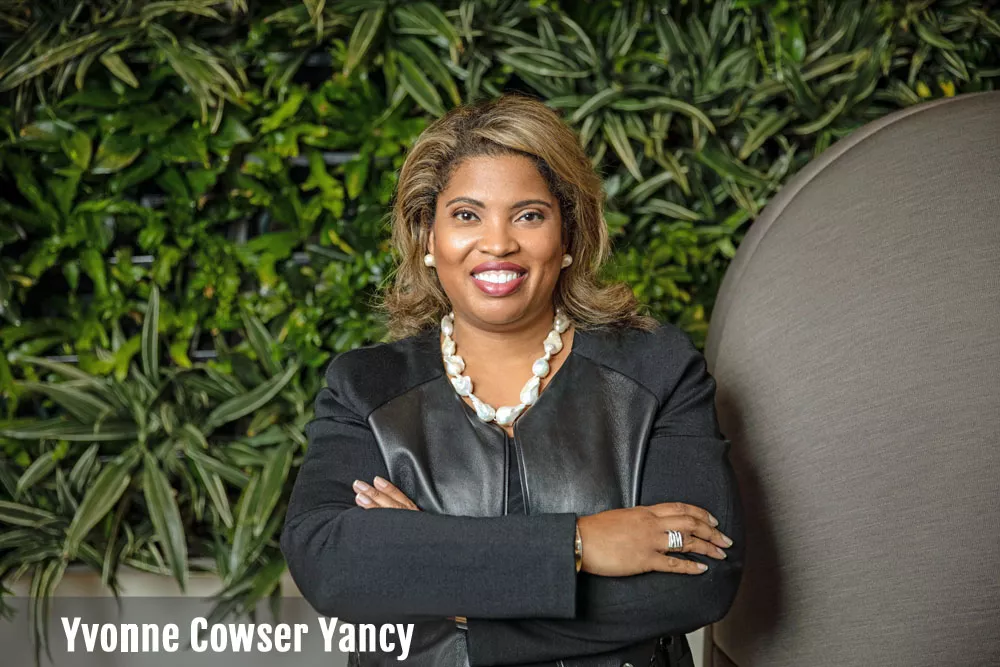By Tawanah Reeves-Ligon
As diversity, equity and inclusion (DEI) measures and programs become standard practice in the workplace there is an often overlooked and underrepresented employee population that continues to fall through the cracks of many programs: the neurodivergent. During an era of reckoning and reconciliation in the American workforce, we encourage you to make sure every voice has a seat at the table and an opportunity to be heard. For more insight, the Black EOE Journal interviewed Yvonne Cowser Yancy, Chief Administrative Officer and Head of Workplace at Understood, a social impact nonprofit and long-term resource and support space for neurodivergent employees. Their recent report, “Employee DEI Experience Study” yielded some revealing results regarding how American workers regard their employers’ DEI efforts.
Black EOE Journal (BEOEJ): What made Understood commission this report? How was the information collected? What was its ultimate goal?
Yvonne Cowser Yancy (YCY): Understood is a social impact organization focused on the 1 in 5 individuals in the U.S. who have learning and thinking differences. Because there are 70 million people in the workplace that live with these invisible differences, Understood fielded this study with [The Harris Poll] to gain insights on how all employees view their companies’ diversity, equity and inclusion (DEI) efforts, and specifically, to unearth whether they are receiving the support they need in order to excel at their employment experience. Through the findings, we discovered learnings for the great things happening at workplaces and the areas of opportunities. The way we work, and the trends of employment, have changed over the past few years. Through this study, we wanted to see how today’s workplace trends have impacted how people work. The fact of the matter is that people are thinking more thoughtfully about where they want to work and how they want to work. For employers, that means it’s harder to find talent and keep talent. We at Understood want to make sure employers take the steps needed to ensure they have spaces where people want to work, and ultimately thrive.
BEOEJ: What were the biggest takeaways from the “Employee DEI Experience Study” report? What do you hope the public, small businesses and corporations will do with this information?
YCY: The positive news is that most people we surveyed who are at work find that their employers are talking about diversity, equity and inclusion (DEI). The opportunity is that roughly a third of the people surveyed talked about struggling to have the tools and support they needed to be effective at work. A little more than half of the people in our survey asked for accommodations in order to do their jobs better but had not received them. For employers, that means they are not getting the output they’d hoped to receive and for employees that means they’re not getting the experience they thought they were going to have. The opportunity is for employers to create supportive spaces for the talented professionals they’ve selected for these jobs. We want to make sure the relationship between employer and employee remains positive. This becomes especially important when you add in the context of how hard it is to find talented people and how people are being thoughtful about finding employers where they can really excel. Organizations must take action to support neurodivergent individuals at work in order to attract and retain talent, reduce the stigma around neurodiversity and create a workplace and culture where everyone can thrive. Proactively offering accommodations — such as flexible work schedules, additional training time and dual written and verbal content — is a powerful and necessary way to help support employees with physical and invisible disabilities.
 BEOEJ: How can businesses and suppliers owned and operated by those with disabilities use this information to make a difference or to negotiate more and better contracts?
BEOEJ: How can businesses and suppliers owned and operated by those with disabilities use this information to make a difference or to negotiate more and better contracts?
YCY: The first step is having access to the knowledge and data needed in order to advocate for oneself. We hope that employees with learning and thinking differences will use these findings as inspiration to disclose their learning and thinking differences, and to request the proper accommodations they need.
Through this study we know there is a need for awareness, education and training on neurodiversity. In fact, our study found that only 47 percent of employees say their employers support neurodivergent individuals.
To combat this shortfall, businesses need to actively seek out employers with supplier diversity programs and initiatives which support employees with disabilities. We at Understood have launched a comprehensive diversity, equity and inclusion (DEI) offering that includes on-demand and virtual live disability inclusion training, as well as workplace assessment and action plan services for employers invested in building inclusive workplaces. This allows employers to have the resources needed to accommodate those with learning and thinking differences and it equips employees with the tools they need to excel. In the end, we want this to be the start of bridging gaps and helping to meet expectations on both sides.
For more information about Understood and resources related to living and working with neurodivergence, visit understood.org.
Yvonne Cowser Yancy Photo Caption/Credit: Yvonne Cowser Yancy, Chief Administrative Officer and Head of Workplace, Understood (Courtesy of Understood.org)
Infographic Caption/Credit: The Harris Poll conducted an online survey among 1,125 employed U.S adults in March 2022 to uncover employees’ attitudes and experiences regarding their workplaces’ diversity, equity and inclusion efforts. (Courtesy of Understood.org)



